Trigger Warning: This interview contains a discussion about suicide & self-harm.
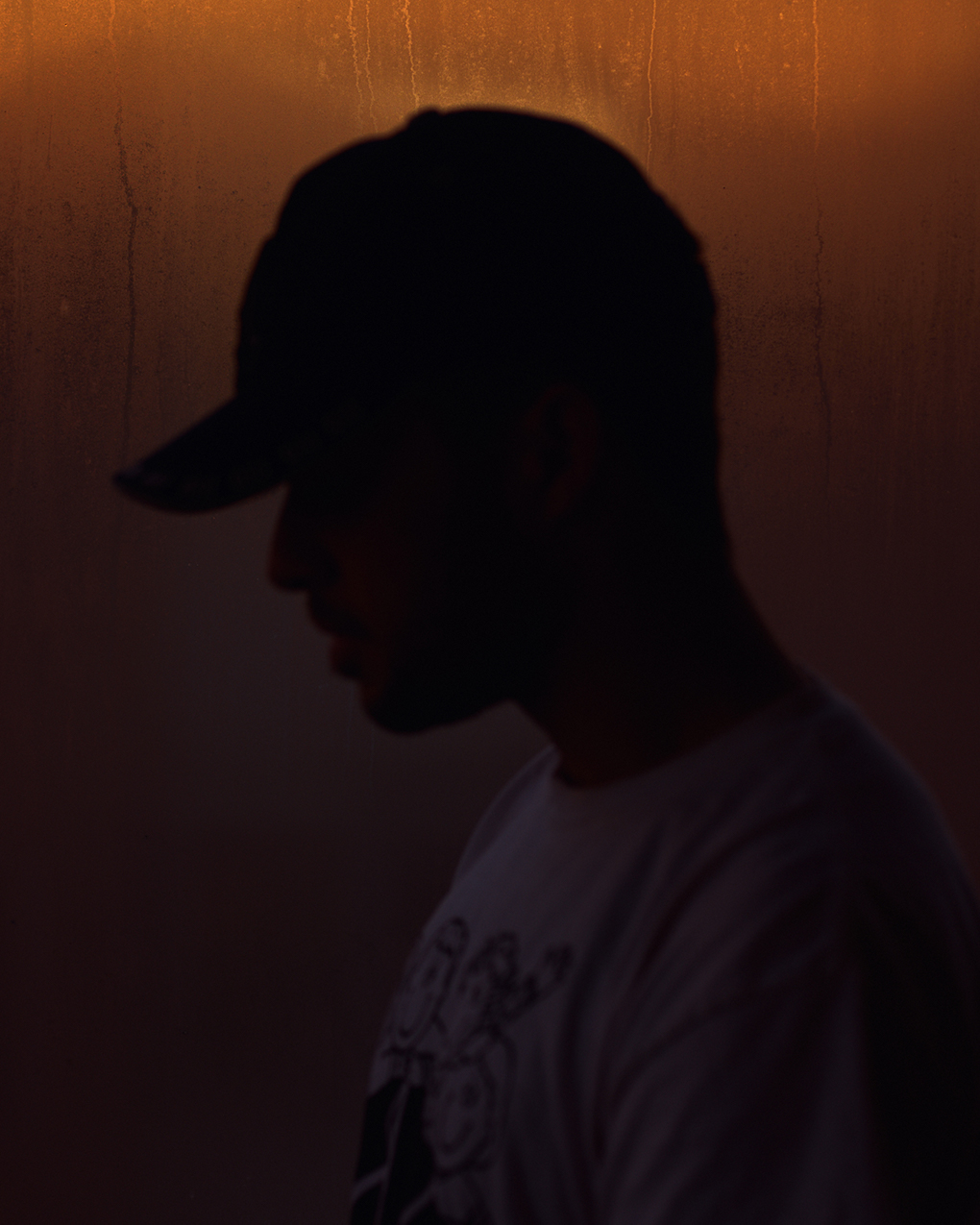
Interview by Tanner Pendleton
I first met Jed in 2006, on a layover in Geneva, on our way to a catalog shoot. It was my very first assignment for Salomon, and my first time meeting everyone on the team. I was nervous, to say the least. To top it off, I had recently developed an unexplained fear of flying, for which I was prescribed a sedative. Jed, perhaps sensing my insecurities, quickly engaged me in conversation. I was relieved, and to my surprise, he made a comment about how flying made him anxious and asked if I wanted to sit next to him. I was shocked that he would reveal that to me, as I was so accustomed to burying such feelings deep inside. It was really cool, and I even felt comfortable telling Jed about my anxieties—something I had never done with a friend, let alone a near stranger I idolized. I’ve never expressed this to Jed, but in a matter of seconds, with one nonchalant comment, he broke down my insecurities and shame. I didn’t take the prescribed pills, and we shared our company for the remainder of the journey. Throughout my relationship with Jed, he has continued to impress me in similar ways. What follows is an interview about Jed’s struggles with mental health. It is, in my opinion, his greatest contribution to snowboarding, and perhaps the world—a bold claim for anyone familiar with his legacy. However, Jed’s courage in telling his story and willingness to express vulnerability, will undoubtedly change lives and help alter the discourse around mental health in our community. Thank you Jed for sharing.

Can you briefly tell me your experience with mental health? What have you been dealing with personally?
Yeah, sure. I guess I've dealt with anxiety and OCD in small ways, since I was pretty young. My first real experience having strong anxiety was based around storms. I had an intense fear of tornadoes, even though I had never seen a tornado in real life. I was maybe 10 at the time. I started to constantly check the weather to make sure there were no storms forecasted. I would check the weather over and over throughout my day. If I saw a dark cloud, I would have to check the weather again to relieve my anxiety. If I didn’t check, I couldn’t move on with my day. I literally couldn’t function until I knew I was “safe.” If there was a storm forecasted, that would usually mean staying home, and sometimes hiding. At the time I was just a little ass kid and I didn't recognize it as an issue, or as any kind of abnormal behavior. My parents picked up on it, and took me to a therapist around that time, but I don’t think they diagnosed me with anything. Over time, I learned to manage those fears a bit better and the anxiety somewhat went away. I would have bouts of obsessions, but nothing really stuck. I didn't deal with any sort of debilitating symptoms again until I was about 18.
How did your anxiety present itself this time around?
I don't really want to talk about a specific “theme,” or what the context of my initial thoughts or fears were. Basically, around that age, I started having extremely intense, disturbing thoughts, and fears. They were completely morally off track. I guess you could call them ego-dystonic. These thoughts, images, words, and fears were on repeat, all day every day. No matter what I was doing, I was constantly plagued by terrifying thoughts and fears. This was accompanied by severe anxiety, which ended up fueling depression. Stopping the cycle in my head was impossible. I started constantly questioning the validity and truthfulness of my own thoughts. I didn't know what OCD was. I didn’t know what anxiety was. I didn't know what depression was. Every day I would wake up and the thoughts would start again. My heart rate would start going up, and I would be stuck again. The longer this cycle went on, the more messed up I felt. I began to really hate myself.
At some point I attempted to do some “research." I nervously searched online for how I was feeling, my fears, my thoughts. I usually didn’t find anything that gave me relief. The info I did find often ended up scaring me more. I used these negative search results as evidence of being a “fucked up person.” I started to nap a lot. I slept as much as I could. Sleep and napping were coping techniques I would use for years. Even when I would be napping, the anxiety often snuck into my dreams.
At this time, had you confided in your parents? Or was it full-on isolation?
I didn’t tell anyone for quite some time. I was trying to manage it on my own and just kind of hoping I’d wake up and the anxiety would be gone. I remembered what it was like not to feel like this, so I was just thinking it would go as it came. My family could tell something was off, but I did my best to hide it. On Christmas Eve, when I was 19 or 20, my issues got to a point where I wasn't functioning. I began to fully shut down. I was in my brother's old room trying to sleep as much as I could. Crying, then passing out for a bit. I went downstairs and attempted to start dinner. I guess I just… wasn’t there. I couldn’t engage in conversation or really speak at all. I remember thinking “I can't live like this. I can’t find relief. Every day feels like torture. I’m a horrible person. I don’t deserve to live.” At that point, it had been about two years of dealing with extreme anxiety and depression. I felt so far from myself. I hated the feeling of having zero control and zero relaxation. I just wanted to feel calm. I hadn’t felt relaxed or confident in a long time. I just kept going over and over in my head, thinking I could figure it out, thinking I would be able to fix everything. But I couldn’t do it. I was so overwhelmed. I was scared of what I was capable of. I didn't want to hurt myself or do something impulsive, so I had my mom take me to the hospital. l tiptoed around what I was going through. I didn’t think anyone would understand how I was thinking or feeling. I didn’t know what it was I was going through, and I really didn’t know how to explain it. Speaking to the nurse was scary, and I wasn't truthful—I couldn’t be truthful. I’d been hiding all these thoughts and feelings from everyone. Now I have to open up about it all to a stranger? A nurse on Christmas Eve? That seemed like the last thing that made sense. After my assessment, they told my parents I should see a specialist and start going to therapy. That was the start of a long road.
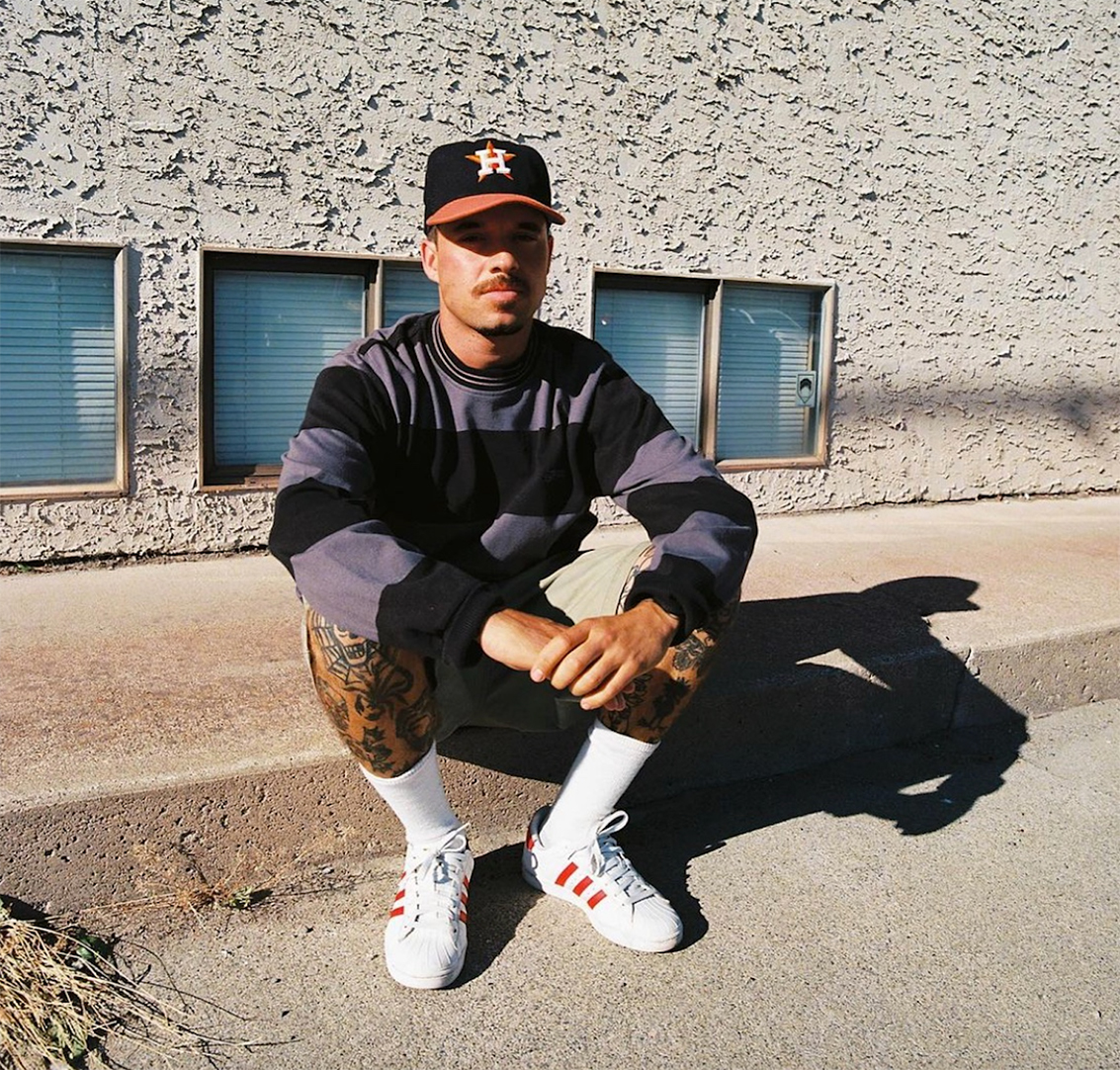
What was that process like?
I continued to try and manage my issues on my own for a while. At times, I felt like I had a grip on them, but they would creep back in, and then get worse. I didn’t even know what my issues were at first, so that made them impossible to manage correctly. I continued to not really tell my friends or family about what was going on with me and do my best to hide it. I knew I needed help, but finding a therapist was intimidating and expensive. I had no Idea what to look for. I didn’t know anyone who went to therapy. Even though 10 years isn’t that long ago, therapy still felt very taboo. I felt embarrassed. I started to reach out to therapists through the internet. It took some time to commit to seeing someone or find anyone I felt comfortable with. Therapy was very spotty. Trying to manage my disorders alongside a career and trying not to have anyone find out was pretty difficult. Once I was able to find someone to open up to, that was the first little step. To be diagnosed and feel a little less in the dark provided relief, but also made me feel broken. “Obsessive compulsive disorder, major depressive disorder, generalized anxiety disorder.” I knew nothing about this stuff, and it scared me.
How was all of this affecting your social life? Did you open up to any friends about what you were going through?
I didn't talk to my friends about it. I felt really insecure. When I was with friends, I wasn't able to fully focus on anything other than my anxiety. If I was skating, I would be ritualizing a lot of the time. If I was at a party, I would be working out little problems in my head. If I was chilling with friends, I wasn’t listening or fully engaging in conversations. I would be involved just enough to not look sus. If I felt like people were picking up on something, I’d crack a joke or whatever. I would often act in a really bubbly and impulsive way to steer attention away. Afterwards, I would wonder why I acted like that. I wasn't being myself. I was just extremely frustrated and sad a lot of the time. I’ve always felt a little out of place socially. So having this “secret” was kind of a cherry on top of that. I would, and still do, have ups and downs. So I would have stints where I felt back to my old self and able to feel okay again. I would neglect my recovery during these times and hope my issues disappeared. The problem is that a lot of these disorders are not curable, but they are manageable. My lack of commitment to therapy meant I wasn’t equipped with the right tools to confront my issues when they came back.
I’m assuming you were snowboarding during this time—how did this affect your snowboard career?
My issues were starting to interfere with my concentration and willingness to go on trips. It was difficult to let go and dive into anything. The idea of leaving my comfort zone and going on a trip made me really anxious. Jet lag, lack of sleep, eating unhealthy is kind of all a part of filming. All of these would usually worsen my symptoms. I didn’t want people to see my medication. If I needed to talk to my therapist, I’d have to somehow disappear from everyone and lie about it. It feels like living a double life; it feels isolating. I would rarely shut down to a point where I wouldn’t actually go. I just became more picky about which trips I would go on and try to make it count when I was on one. I did start to enjoy certain aspects of snowboarding more—if I was battling a trick, or able to really be in the moment, I could escape for a little bit, and replace my OCD anxiety and thoughts with the anxiety of trying a trick. This brief relief would make me want to snowboard, but more so film. I was able to forget a bit, be present, and have fun.
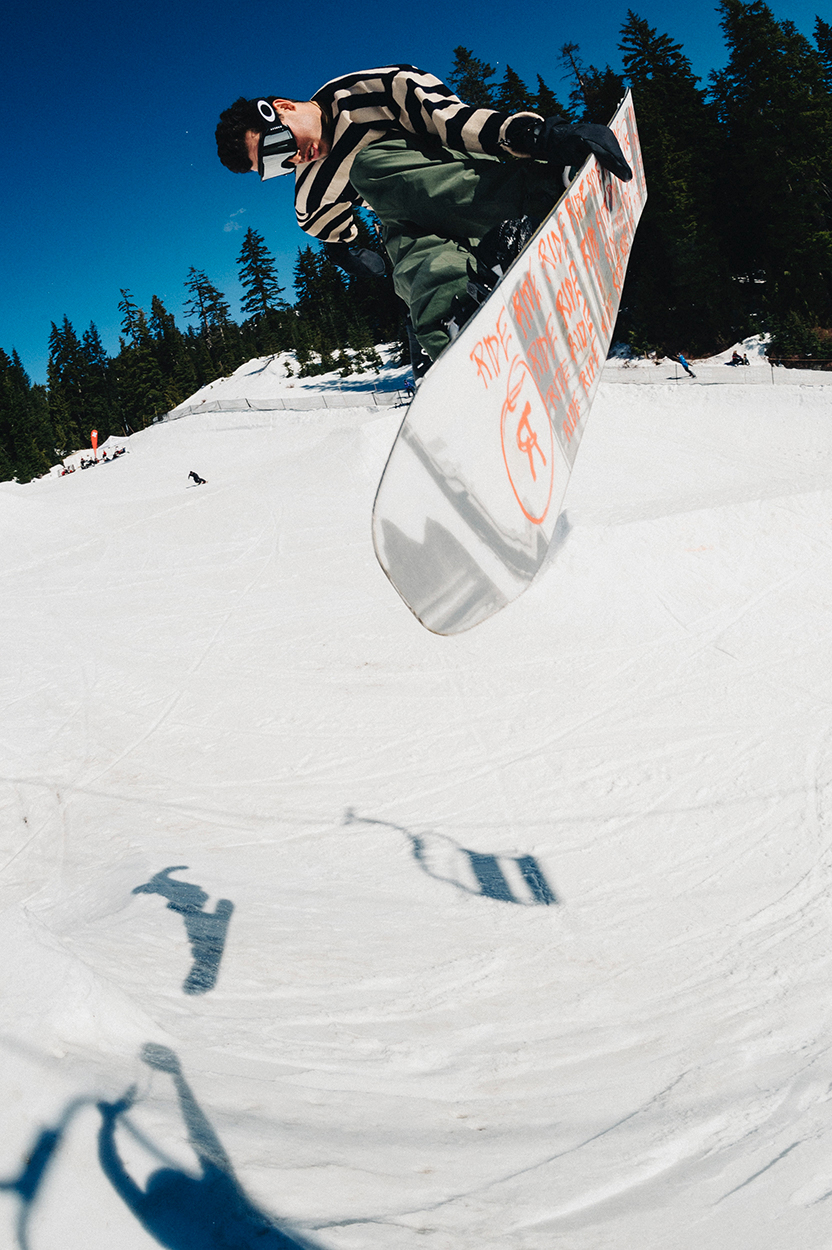
This may seem like an odd question, but were there any times your anxiety or anything you may have been dealing with at the time, actually pushed you to go above and beyond? Were there times where your disorder acted like a blessing rather than a curse?
I think yes, at times. Within snowboarding it did because honestly—it sounds pretty funny—I'd be so frustrated emotionally, I would just commit to tricks out of anger. Like, “I don't care if I get bodied right now” [laughs]. Also, achieving goals like getting a clip or filming a part, would give me fulfilment and something to be proud of. I guess it's something to be confident about and feel self-worth. Filming a video part would give me a purpose and something to work on. Aside from snowboarding, I feel there are some positives. I didn't know what anxiety really felt like before. I didn't know what it was to be depressed. I think having these extreme symptoms has allowed me to connect with others on a deeper level and become less ignorant.
From an outsider’s perspective I would have never guessed. I remember during this time you were coming to New York a lot, putting out artwork, etc.
I was really trying to live with the mentality of, “If I didn’t feel this way, what would I do?” I had dreams before I had mental health complications. I wanted to stay true to them. I wanted to have a life. I was in a unique position. Being young, I wouldn’t forgive myself if I didn’t at least try to go do cool shit. So I put a lot of pressure on myself. A lot of the time, these trips felt somewhat forced. I wasn't really healthy enough to be in those environments. The intense emotions would really take away from any sort of authentic experience. I was exhausted, but I felt like it would be so dumb to not take advantage of this lifestyle. A lot of time on those trips was spent just trying to be stable and appear to be stable to others and working out issues in my head. I would often dwell on how much fun I could be having without this anxiety, if I could just feel how I used to, which of course made me more depressed. I would often think about how I would give up everything to not feel like this anymore. The constant anxiety gave me so much self-hatred. The inner comparison to others around me and my idea of their realities drove me into the ground. I would be in New York, doing whatever I wanted—eating great food, meeting cool people, living this dream dream trip. But I was more depressed than I had ever been. I was just frustrated and desperately wanted to feel at peace again. The disorder felt like it was stealing everything from me. Happiness felt really distant.
In my eyes, you've always sort of been this icon of cool. And I think that's really important because a lot of kids out there look at you and think the same thing. But you're going through a lot of shit that nobody knows about. How does that idea sit with you? To be appearing one way on the outside, but feeling another way on the inside?
[Laughs] Thanks, Tanner. I for sure understand that perspective. I know how my life looks from the outside, and how privileged my lifestyle is. I was scared for people to find out because I felt the response would be something along the lines of, “What do you have to be anxious about? What do you have to be depressed about?” I didn’t understand, and I don’t think a lot of people understand, that it isn't our choice to have these disorders. It’s pretty cliché to say, but you never really know what the fuck anyone's going through. You never know what someone is going through or what they could be struggling with. You don’t always know what’s going on when people get home. I know within snowboarding, some kids look up to me or whatever, and I’m sure when most people read this who know me, they might be surprised to hear I have these struggles. When it comes to depression, anxiety, addiction, abuse, etc., it’s not always obvious, and it’s not a certain type of person.
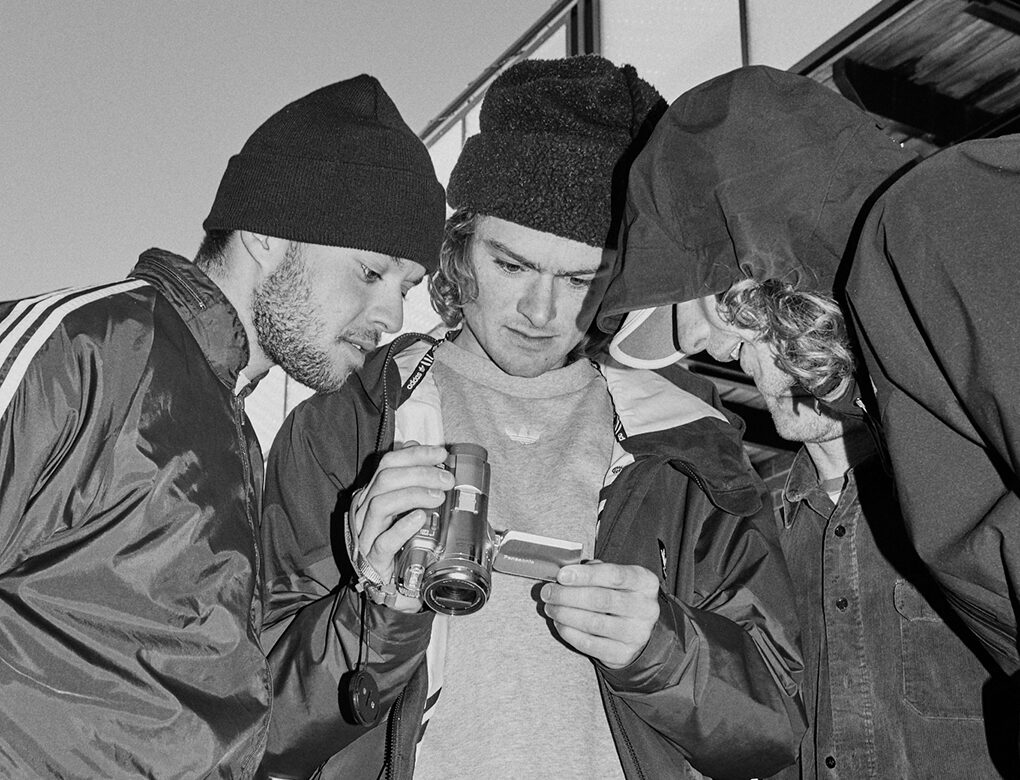
In the last few years, we have sadly lost a few people in our community to suicide. Having been through so much yourself, I’m curious if you’d like to touch on that subject and speak to how it affects you personally?
It seems like when we have these tragedies, there’s often this reaction of people saying, "They were so happy; I was with them yesterday, and they seemed fine.” A lot of times, like I mentioned before, it's the last person you might think who is struggling the most. People do a lot of hard work to hide what they are going through. Life for some can become constant suffering with no signs of an ending. Symptoms can get worse, and I think everyone just wants inner peace. People want relief. Suicidal ideation is something I have struggled with throughout my recovery. It’s sad when it gets to a point where it seems like the only option to find calm is so extreme and permanent. Unfortunately, we've lost some people close to us in the last couple of years. I think suicide is an important topic that needs to be spoken about more often. For many, it's unthinkable. But for some, it's not just a fleeting thought. While these thoughts and emotions are very real, opening up about them and telling someone could be a first step in finding some relief. It’s an overwhelming first step to take, but it’s worth it.
I've been thinking back on the days we would film together. I’ve been trying to think of clues that might have helped me to see what was going on with you. I can recall at the dinner table you'd sort of just be in your own world drawing with your finger on the table. Or just in general, some days you were the life of the party and other days you would just put your headphones on in the morning and sit in the back of the van.
Yeah. For sure. Both are definitely true. I have up and down days, like everyone. When I’m up, and my OCD and anxiety is quiet, it’s easier to be energetic and engaged. If I’m down or feeling really anxious, I tend to be quiet and stay to myself. Like I mentioned before, I didn’t really want anyone to know what I was feeling or bring anyone else down. Being on trips could be easier at times because I could focus on getting clips, not my anxiety. When the OCD quieted down, I could feel like myself again, for a bit.
Looking back on it, in your opinion, what can a friend do to help out somebody who might be in need?
One of the hardest parts of living with a disorder is this underlying notion that you’re not really supposed to talk about it. That mentality is kind of ingrained into all of us from a young age. I always felt the need to keep it a secret, that it’s this negative, weak part of me. I felt a lot of shame. It stole a lot from me. For that reason, it can be hard to know if someone is going through something. I think dissolving the weird stigma revolving around mental health and addiction is important. These topics becoming less reserved could hold a lot of power for change and safety. It seems people work hard to uphold a perfect, curated image. It's hard to not beat yourself up when we basically only see the positives in everyone else's lives. We are all extremely judgmental these days–myself included–but I don’t think that these issues should hold any fuel for embarrassment. We didn’t choose this. Why should we feel ashamed? As far as helping someone or creating more support within friendships, I think just knowing people have your back goes a long way. Having consistent communication and other forms of subtle support helps a lot. If you suspect someone might be struggling, it might mean opening up and showing vulnerability first about something in your life. I think everyone tends to have a pretty harsh barrier up, and it can be hard to let it down. It can be difficult to not shut those parts of yourself off, even with people you are closest with. It’s important we stay in touch, and if you have a weird feeling someone you know might be struggling, don’t hesitate to check in.
Just being supportive of your friends, and being open with one another, so we can be proud of who we are and have self-compassion—that’s the most important thing.
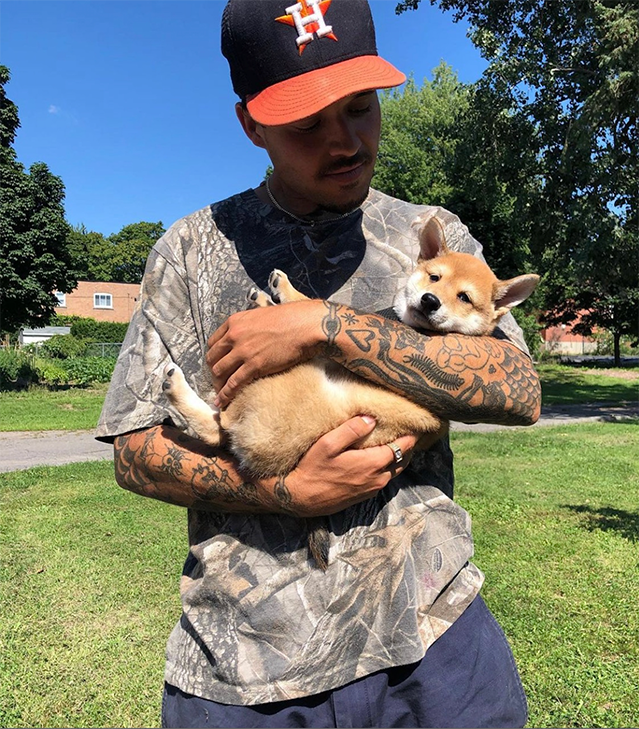
Yeah, there needs to be a big change, way beyond our snow and skate communities. The APA recently categorized traditional masculinity as a threat to society. This idea that you have to be the strong silent type is so unhealthy.
For sure. Bottling emotions up, pushing our issues further down, it only makes us angry and frustrated. It ends up leaving you further from anyone. I’m not saying everyone has to come out and share their personal struggles with the world. It can be a very subtle shift. We have to get to a point where it is okay to speak about our struggle, and to check in with others about theirs. I think these small changes could give people more confidence and help minimize extreme events.
Tell me about this program you recently completed and how you got enrolled…
Yeah, I went to an intensive treatment program for OCD last summer. There's only one of these facilities in Canada. I was lucky because it's in Toronto, which is where I live. You have to have treatment-resistant OCD. Which basically means that traditional therapy, medication, or alternative methods have not provided you with a functional life. The program was five days a week, from 9am to 4pm. So, I was doing that from the beginning of June through the end of September in 2019.
That’s a full-time job. What was the day-to-day like?
The experience was pretty wild. It had been a long time since I had a set schedule. I would either bike or take the subway. It was an hour there and an hour back. First, it would usually be some sort of a group class. It was mainly group therapy classes, with one-on-one therapy a couple times a week. At lunch there was a cafeteria with group tables—which at first made me pretty uncomfortable. It was the first time in so long I had to sit with a group of people I didn’t know. Making conversation with someone who I have nothing in common with felt awkward at first. It made me realize how much of a bubble I had created for myself. That being said, the food was bomb [laughs]. After lunch there would be a couple more classes, and I would bike home and go skate or whatever. Often, I would have homework, so I’d work on that and go to sleep pretty early. It felt good to have more of a structured day-to-day.
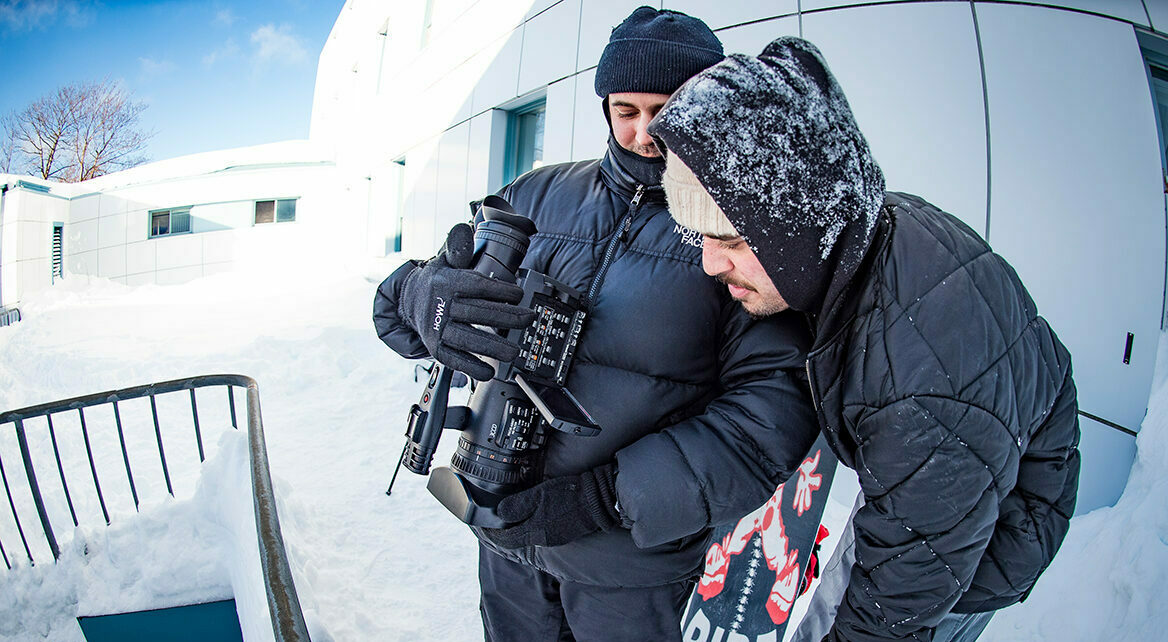
Speaking of structure, do you find that having a lot of time on your hands can have a negative affect?
If I'm not engaged in something, I can get wrapped up in my head and spiral. With snowboarding as a career, everything is pretty lenient. As long as you're doing your shit, being productive, and have enough footage, there’s never a set time or whatever. I try to create responsibilities and work towards other goals when I’m not snowboarding. I am still working on being able to just relax and do nothing, because that’s important too.
How do you feel after completing the program?
I wouldn't say that it cured me or anything. I am still in recovery and making progress. I’m still seeing a therapist regularly. The program definitely put me in a position where I was confronted with some issues I needed to be. I’m super lucky to have been able to attend. Seeing that there are so many different kinds of people dealing with a similar issue was pretty eye-opening. Almost everyone who was in that program had kept their OCD a secret even from those closest to them. Like me, they had never really opened up to anyone about it. It showed me how important consistency is and how important it is to stay on top of your recovery.
Without disclosing anything you don’t want to, is there an example of OCD or intrusive thoughts you’d like to share? I think it might help paint a picture for some readers who may not have experienced anything like this. Maybe the mother and her newborn would be a good example?
Oftentimes, people think of OCD as a fear of germs or organizing. I don’t want to take away from people who experience those themes or rituals. These are definitely types of OCD that exist and can be just as devastating. But there's a laundry list of other OCD themes. My experience with OCD mainly revolves more around intrusive thoughts. Every single human has intrusive thoughts. I'm sure people have been driving their car and thought, "Oh, what if I swerve and hit this person?" Or you're at the subway and you're like, "I could just push this dude in front of the subway right now." Most people have those brief thoughts and shake it off. For someone with OCD, it's those little thoughts that can latch on and take over their whole lives. The example of a mother and their newborn is pretty classic. Basically, a mother gives birth, and they're looking at this beautiful newborn. The mom has a thought: "What if I accidentally hurt my baby? That’s the initial thought, and it becomes all they can focus on. These thoughts about potentially having the ability to hurt this child don’t seem to go away. Now they might start to question if they secretly want to hurt the baby. What at first was just a thought, has become a realistic fear. The mom might start isolating themselves to avoid being around the baby in fear of what they could do or the debilitating anxiety that now causes. Instead of changing and feeding the baby, they might start to make others do it. Now, they won’t spend time with their child anymore. The mom doesn’t have a relationship with the baby because they won’t let themselves go near them. This evolves into depression because they have this newborn, but constant fear and anxiety that they are capable of doing something unthinkable to them. The graphic images and thoughts replay in their head and they become convinced they are evil. All their time is devoted to trying to figure out if they are going to hurt someone—searching for clues, physical feelings, signs, etc. It could progress further to where if they see any kid, they're scared they are capable of hurting them. Now they won’t go to the mall, or anywhere they might be around kids. They might start avoiding TV shows or movies that have kids in them. They're just in their house in a room locked, and people live like that. People live like that for years—forever sometimes, and it all spiderwebs from one little thought. Their whole lives are completely taken over. I feel like that's a pretty good example of how things can escalate and how dark it can be. Another good example that everyone is familiar with is “step on a crack and break your back.” Ocd latches onto thoughts and behaviours like that and can take over your life.
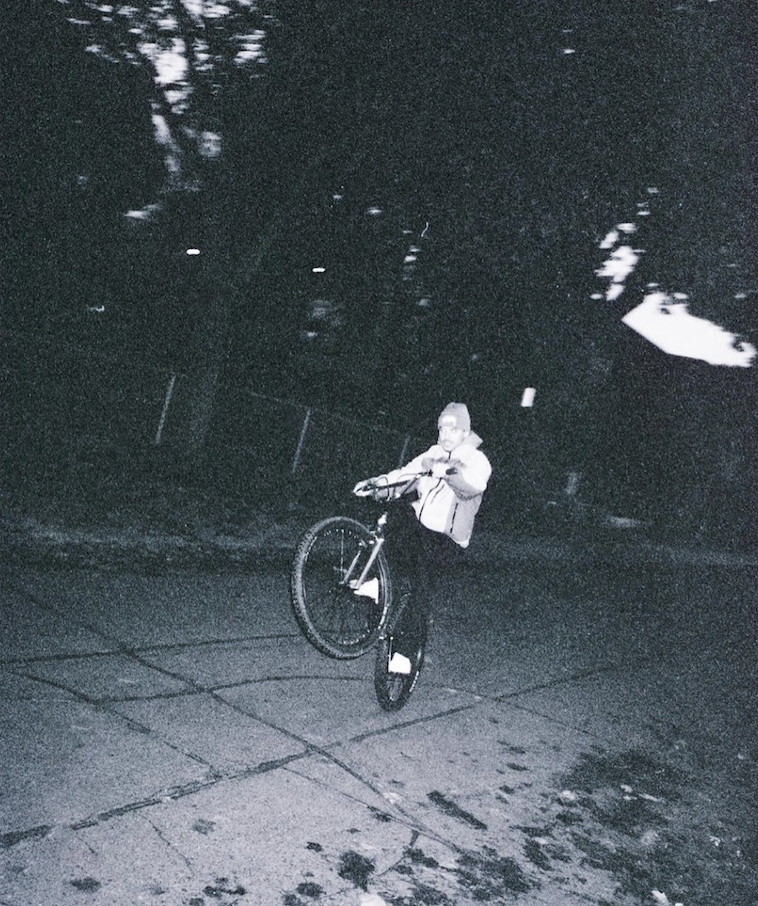
Going through all of this, how has it affected relationships with family, friends, sponsors?
It has affected and continues to affect most of my relationships. Having better skills now, it affects my relationships in a negative way less often. As far as relationships with friends, I'm hoping that opening up about this will be a positive. This is a huge part of myself that I've been keeping inside for so long. It is more a part of me than anything else really, and, in a way, I feel like I haven’t been able to fully be myself keeping it to myself.
With snowboarding, it affected my sponsorships in the past for sure. There were times where a sponsor would want me to go do a board test or something, and I wouldn't really be stable enough to attend, so I wouldn't go. I didn’t feel like I could be open with them about the real reasons, so I would make up excuses. I think that my perceived attitude at times put a bad taste in some of my sponsors’ mouths. I get it for sure, at the time it was the only way I knew how to deal with it.
I mean, I think there are a lot of people out there who are feeling the exact same way. The fact that I just learned that you're going through this stuff is so comforting because I can relate on so many levels. It’s really inspiring to me that you are able to talk about it.
Thank you. That means a lot, for real. These issues are fairly common. Conversations need to happen more often. I always think back to when I started feeling these things. If someone I looked up to, someone into the same shit I was into, or just a homie, had said anything about anxiety or depression it would have made my situation a little less overwhelming. I don’t want pity, and I’m not trying to be a hero through opening up. I’m not doing this interview so people can feel bad for me. I just want to be open and honest with my experience, and hopefully it can make someone else’s life a bit easier. Maybe someone can feel less alone inside their head. No one likes to feel vulnerable. With my story, I have had, and still have, a lot of fear about opening up. I always had this “fantasy” of beating OCD and anxiety before talking about it. Then, I could finally spill it all out and be like, "I went through this, but now I’m cured!” I don’t know if that “perfect moment” I’ve been waiting on is very realistic. I believe the more people who are in positions like myself who talk about their experiences, it can provide more power and safety to others going through something. It’s important to start to normalize. On top of that, I didn’t feel like it was right to be talking about my personal issues, especially in recent times. We have a lot of injustice and corruption within our world. The last thing I want to do is stray away from the importance of these issues by talking about myself. I don’t want to take up space or minimize any of that focus.
What we can do in our community to make steps in a direction that’s more open and aware of mental health issues? And what can we do as a society on a bigger, more global picture?
Largely, we need resources in place that provide support. We need safer spaces and better resources—whether it be mental health, addiction, housing, etc. We need to have the correct measures to help those in a crisis. We need to be educated about mental health and addiction in school. Having no prior education made my initial symptoms even more foreign and maximized my recovery time. I think as a community it’s giving these areas the proper attention. We need to talk with each other regularly and openly. Awareness and conversation is key.
Back on the subject of OCD. I think the language we choose to use is also important. OCD is not an adjective. It is not preferring to have something a certain way or to keep your room in order. Sufferers need to engage in these time consuming rituals to function. People with OCD don't have control over these choices and are dealing with a crippling illness. Misuse of these words takes away from that.. It’s not a funny quirk, or cool. I'm not out here saying I'm trying to cancel people for misusing these terms. I had no idea before I went through this myself. Just something to be aware of.
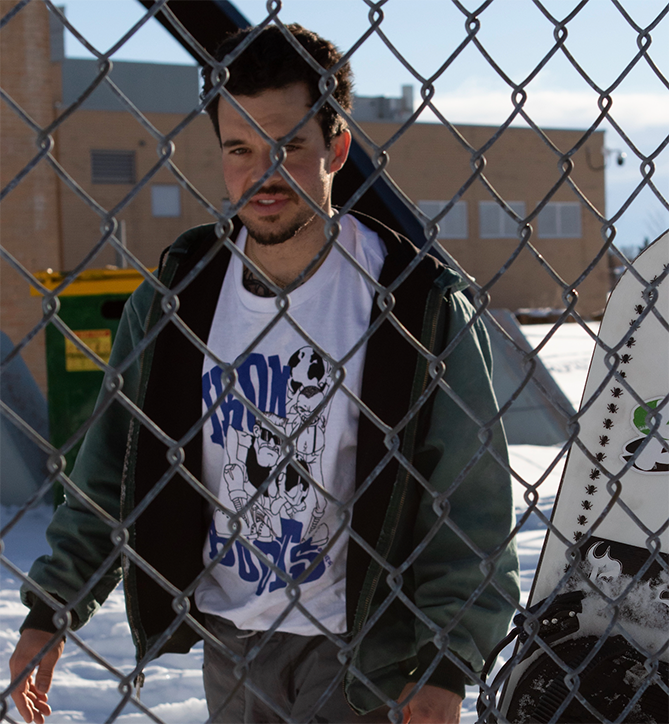
Having spent so much time working on your disorders, seeking help, and learning about OCD, has it been more manageable this year going into filming? You are doing a project with Jake [Kuzyk], Kennedi [Deck], and Hayden [Rensch]. I am wondering how that has been going and if you have opened up to them?
I’m happy to say that over the past couple years I have found more stability in general. Consistent therapy has helped. My family has been very supportive since I have opened up to them more. I still spiral and have bad weeks, but I am usually able to use these skills to pull out. I'm excited about this project we are working on! I haven't got to film with Jake in a long time. We have been working on separate projects for so many years. I have been friends with Hayden for so long and I always like working with him. I have never filmed with Kennedi, but I am a big fan. We have only done one trip so far, but it went really well. I have opened up to Jake a bit, but I haven't spoken to Hayden or Kennedi at all. The last trip we went on I had a therapy session in the morning. They asked me where I went and I just told them I had a therapy session. That's the first time I had been open in a situation like that.
Thanks so much for sharing, Jed. Any final thoughts?
If you are going through something—whatever thoughts you are having, whatever you’re dealing with—I have no fucking judgment towards you. There are a lot of people out there who don’t have judgement toward you. There are people who understand what you are going through. I get how scary it is to reach out to someone, and I understand how overwhelming it is. I understand how isolating it is to keep everything pushed down. Please reach out for help. Talk to a friend. Tak to your family. I get that our parents are from a generation where this stuff wasn’t really talked about. If it’s within your means, I recommend talking to a therapist. Therapy is less scary than it seems. Teletherapy is less weird than it seems. Don’t give up after one try. Stick with it. There are more resources becoming available all the time. Talk to your family. Talk to your friends. You will have good days again. Anyone who's ever opened up to me about something personal, it’s so cool and admirable. It’s not a weakness at all. It’s awesome, and I hope we can all start to let our guard down a bit. Being open and honest with others should be celebrated the same as our other accomplishments. It’s taken me a good decade to come forward and speak about any of this. It’s been more challenging than any snowboard part, skateboard trick, or anything else I’ve worked hard on.

Resources:
Suicide hotline Canada: 833-456-4566
SMS: Text START to 741741
National sucicide hotline: 1-800-273-8255
https://www.madeofmillions.com/get-help
https://www.psychologytoday.com/ca
https://www.madeofmillions.com/articles/pure-o-an-exploration-into-a-lesser-known-form-of-ocd